- Why Are Behavioral Interview Questions Important?
- The 6 Most Common Behavioral Interview Questions
- How To Answer Behavioral Interview Questions?
- Behavioral Interview Questions: Examples
- Tips for Acing a Behavioral Interview
- Frequently Asked Questions (FAQs)
Behavioral Interview Questions With Sample Answers On Leadership, Teamwork & Other Soft Skills

One type of interview that has become increasingly popular is the behavioral interview and mastering behavioral interview questions can significantly improve your chances of success during job interviews. After all, a key element of making a good impression on potential employers is interview prep.
Behavioral interview questions are designed to assess a candidate's past behavior in specific situations, providing insights into their skills, thought processes, and behavior. Unlike technical questions that focus on a candidate's knowledge and abilities, behavioral interview questions require candidates to draw from their personal experiences to showcase their soft skills during a job interview.
Let’s find out the top behavioral interview questions that you may face in an interview and the best ways to answer them.
Why Are Behavioral Interview Questions Important?
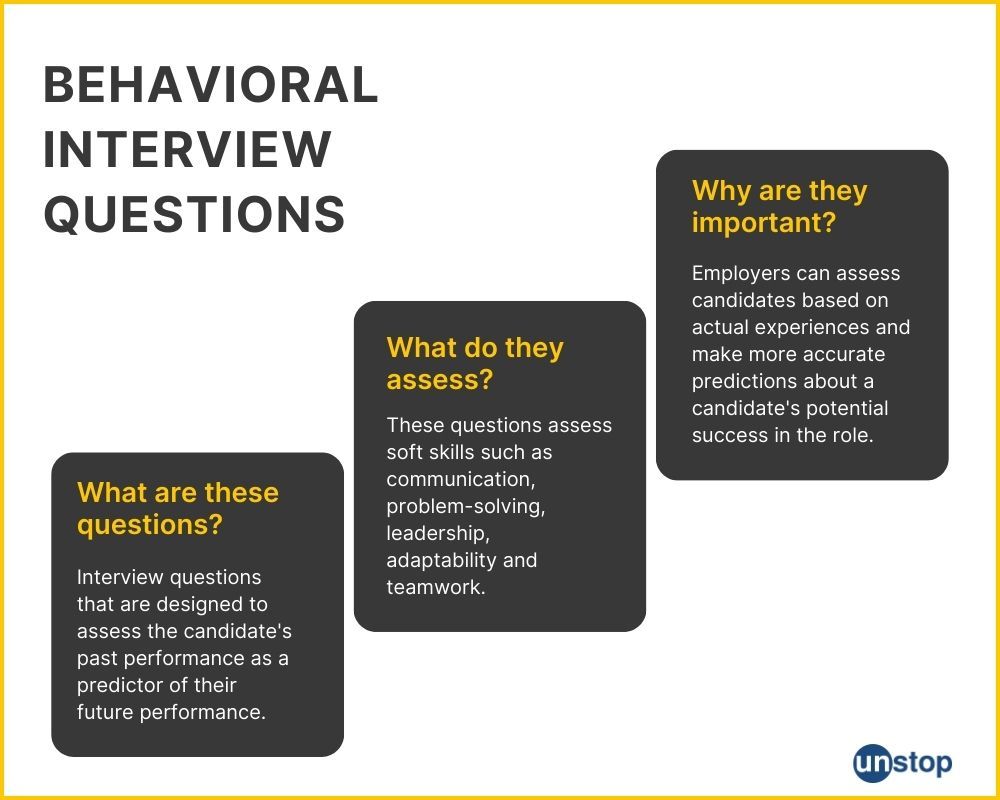
Behavioral interview questions are rooted in the belief that past behavior is often an accurate predictor of future behavior. These types of questions are commonly asked during a job interview as part of the interview process. One important answering tip for behavioral interview questions is to provide specific examples from your past experiences. Instead of relying solely on hypothetical scenarios or general statements, employers believe that understanding how candidates have handled specific situations in the past can provide valuable information about their skills, abilities, and potential fit within the company. This approach helps them evaluate whether candidates possess the necessary qualities and competencies required for success in the role they are hiring for.
For example, if an employer asks a candidate about a time when they had to resolve a conflict within a team, the response will provide insights into their conflict resolution skills and interpersonal dynamics. Did the candidate actively listen? Did they find a compromise? Or did they take charge and assert themselves as leaders? These answers can give employers valuable clues about how well the candidate may handle similar situations in the future.
Behavioral interviews also allow employers to dig deeper into a candidate's thought process and decision-making abilities. By asking open-ended interview questions that require detailed responses, they can gauge how well candidates analyze problems, communicate ideas effectively, and handle challenging situations.
What is being assessed?
As the name suggests, behavioral interview questions assess candidates’ behavior or soft skills. The top five skills assessed through these questions are:
- Communication skills
- Problem-solving skills
- Leadership abilities
- Adaptability and flexibility
- Teamwork and collaboration skills
Coping with Failure in the Workplace
Apart from the aforementioned soft skills, behavioral interviews also help assess how candidates handle failure. Understanding how candidates cope with failure is essential because it reveals their attitude towards difficult situations. Employees who can effectively navigate challenges and setbacks are more likely to contribute positively to the workplace.
Candidates should approach questions about failures by taking ownership. Acknowledge responsibility and share examples of bouncing back, highlighting how failures provided opportunities for innovative solutions.
Learn more about handling interview questions on failure.

The 6 Most Common Behavioral Interview Questions
Let’s take a look at the most common behavioral interview questions asked, and the way to answer them:
Teamwork: "Tell me about a time when you had to work collaboratively with a team to achieve a goal."
This question assesses your ability to work effectively as part of a team. Employers want to know if you can collaborate, communicate, and contribute positively to group efforts. When answering this question, provide an example that demonstrates your teamwork skills and highlights the role you played in achieving the goal.
Sample answer:
During my previous job as a project manager, I faced a significant challenge when our team was tasked with completing a complex project within a tight deadline. The project involved multiple stakeholders and required a high level of coordination and collaboration. To overcome this challenge, I organized regular team meetings to discuss progress, identify roadblocks, and brainstorm solutions. Additionally, I delegated tasks based on team members' strengths and provided support and guidance when needed. Consequently, we were able to complete the project on time and deliver high-quality results.
Read here to find out more about answering questions on teamwork.
Problem-Solving: "Describe a situation where you faced a difficult problem at work and how you resolved it."
Problem-solving skills are highly valued in many industries. This question allows employers to evaluate your ability to think critically, analyze challenges, and develop effective solutions. When answering this question, explain the problem you encountered, outline the steps you took to address it and emphasize the positive outcome achieved through your problem-solving abilities.
Sample Answer:
In my previous role, I was handling a project with multiple stakeholders and complex requirements, which made it difficult to meet the tight deadline. To resolve the issue, I immediately called for a team meeting to assess the situation and brainstorm solutions. I also communicated with the client to negotiate a revised deadline, explaining the challenges we were facing. We eventually broke the deliverables into two groups - high-priority tasks which we shared by the original deadline and the low-priority tasks that we could handle at a later date. Through effective collaboration and clear communication, we were able to come to a solution that worked for all stakeholders.
Leadership: "Tell me about a time when you took on a leadership role or demonstrated leadership qualities."
Leadership is an essential skill for many positions, even if they don't involve formal management roles. Employers want to see if you can take charge when necessary and inspire others towards success. When responding to this question, share an experience where you showcased leadership qualities such as taking initiative, motivating others, or making tough decisions.
Sample Answer:
I was working on a project where my manager had to leave unexpectedly mid-way through the project. Recognizing the need for someone to step in and provide leadership, I took on the responsibility of leading the team of five technicians to ensure the successful completion of the project. I assessed the progress made so far, delegated the remaining tasks to each team member based on their strengths and expertise, and ensured that everyone had a clear understanding of their responsibilities.
Taking on the leadership role in this unexpected situation was not without its challenges, the primary being maintaining the client's trust and encouraging the team members to respond to a change in leadership. However, by remaining calm and focused, I was able to effectively manage the team and the project.
Adaptability: "Describe a situation where you had to adapt to changes or unexpected circumstances quickly."
In today's fast-paced world, adaptability is crucial for success in any role. Employers want to know if you can handle unexpected challenges and adjust your approach accordingly. When answering this question, provide an example that demonstrates your flexibility, agility, and ability to thrive in dynamic environments.
Sample Answer:
During my time as a sales manager at XYZ Company, we had a major client who unexpectedly decided to cancel their contract. This was a significant blow to our sales targets and revenue projections. However, instead of panicking, I quickly gathered my team and strategized a plan to mitigate the impact. We identified other potential clients and reached out to them immediately, offering special incentives to secure their business. Additionally, I contacted existing clients to upsell and cross-sell our products. Through our quick adaptation, we were able to not only recover from the loss but also exceed our sales targets for that quarter. This experience taught me the importance of being flexible and adaptable in the face of unexpected circumstances.
Communication: "Tell me about a time when you had to communicate complex information to a diverse audience."
Strong communication skills are highly valued in the workplace. This question allows employers to assess your ability to convey information effectively, tailor your message to different audiences, and ensure understanding. When responding, describe a situation where you were able to effectively explain and communicate a project idea, deliverables, changes, or other complex information.
Sample Answer:
When I was working as a customer support manager, I had to conduct a training session for our new product launch. However, just an hour before the session, the projector broke down. With a diverse audience of employees from different departments, it was crucial to effectively communicate complex information about the new product. Without wasting any time, I quickly gathered the necessary materials and improvised by using a whiteboard to visually explain the information. I ensured that I simplified the content and used clear and concise language to make it easily understandable for everyone. I also ensured to send a follow-up email with the prepared deck, while blocking time on my calendar for a week to resolve personal queries. What I count as a personal win is that there were limited queries, and most employees were able to grasp the details quickly. In fact, as a result of this session, I was invited by the senior leadership to hold another session on effective communication skills.
Coping with Failure: “Can you describe a situation at work where you faced a significant challenge or setback? How did you handle it?”
To answer this question, provide a detailed and specific response. Start by describing the situation or task that presented the challenge or setback, including any relevant background information. Then, explain how you handled the situation, highlighting the strategies or steps you took to overcome the challenge or setback. It is crucial to focus on your actions and problem-solving abilities, demonstrating resilience, adaptability, and determination.
Sample Answer:
During my time as a graphic designer, I faced a significant setback when a client requested last-minute changes to a project that was already in its final stages. The changes were extensive and required a complete redesign of the layout. Initially, I felt overwhelmed and stressed, but I quickly realized that the best approach was to remain calm and focused. I immediately communicated with the client to understand their requirements in detail and then created a revised timeline to accommodate the changes. I also sought assistance from my team members to ensure that we could meet the new deadline. Eventually, we were able to deliver the revised project on time and to the client's satisfaction.
Remember: While these are commonly asked behavioral interview questions, different industries may prioritize certain types of behavioral questions based on the specific skills and traits they value most.
How To Answer Behavioral Interview Questions?
Preparing for a behavioral interview can significantly improve your chances of success. It allows you to reflect on your past experiences and identify relevant examples that demonstrate your skills and accomplishments. Effective preparation enables you to articulate your thoughts clearly during the interview and provide concise yet detailed responses.
Research the role and company culture.
When preparing for a behavioral interview, it is essential to review the job description thoroughly. Identify key skills or competencies required for the role and think about instances where you have demonstrated those qualities in previous jobs or experiences.
In addition to preparing examples from your past experiences, also take the time to understand the organization's values, mission, and culture. This can help you align your answers with their expectations. By demonstrating that you share similar values or have experience working in a similar environment, you can show employers that you are a good fit for their company.
Pro Tip: Explore the company's website, social media profiles, and any recent news or press releases. Look for information about their core values, corporate culture, and any specific projects or initiatives they are involved in.
Structure your responses
It’s not enough to gather information - one also has to be able to structure their answers and give a strong response. One effective method is using the STAR (Situation, Task, Action, and Result) technique:
-
Situation: Start by describing the specific situation or context in which the behavior occurred. Provide enough details so that the interviewer can understand the scenario.
-
Task: Next, explain what task or challenge you were facing in that situation. Be specific about your role and responsibilities.
-
Action: Then, outline the actions you took to address the task or overcome the challenge. Focus on your individual contributions and highlight any relevant skills or qualities.
-
Result: Finally, share the outcome of your actions. Discuss how your efforts positively impacted the situation and achieved the desired results.
By following this structure, you can ensure that your response is well-organized and showcases your abilities effectively.
Provide Specific Examples Highlighting Relevant Experiences/ Accomplishments
It’s always preferable to provide answers with specific examples that demonstrate the desired skills and qualities that interviewers are looking for. Here’s how you can do that:
-
Choose relevant examples: Select examples that closely align with the job requirements and competencies mentioned in the job description. This will show that you have a good understanding of what they are looking for.
-
Provide details: When describing your example, be sure to provide enough details to paint a clear picture of the situation. Explain what specific actions you took and how you approached the task or challenge.
-
Quantify your achievements: Whenever possible, quantify the results of your actions. This could include metrics such as percentages, monetary amounts, or timeframes. Quantifying your achievements adds credibility to your response.
-
Focus on the impact: Highlight the impact of your actions and emphasize how your skills and qualities contributed to achieving successful outcomes. This will demonstrate your ability to deliver results.
Practice Answering Behavioral Questions
Practicing answering behavioral questions is essential to build confidence and improve your ability to articulate your experiences effectively during an actual interview. Consider these strategies:
-
Conduct Mock Interviews: Enlist the help of a friend or family member who can act as an interviewer and ask you typical behavioral questions. Practice responding using the STAR method while maintaining a conversational tone.
-
Role-Playing: Another effective technique is role-playing with a trusted friend or mentor who can simulate an actual interview scenario. This allows you to practice thinking on your feet, handling unexpected questions, and refining your responses.
-
Record Yourself: If possible, record yourself answering common behavioral questions during mock interviews or role-playing sessions. This allows you to review your performance, identify areas for improvement, and work on refining your answers.
Behavioral Interview Questions: Examples
Here are some sample behavioral interview questions that you can prepare for in advance:
Questions on Teamwork:
- What do you enjoy the most about working in a team?
- How do you promote collaboration and cooperation within a team?
- Have you ever worked with someone whose personality was completely different than yours? How did you handle it?
Questions on Leadership:
- Describe a time when you had to lead a team through a challenging project.
- How do you motivate and inspire your team members?
- Can you provide an example of a time when you had to make a tough decision as a leader?
Questions on Adaptability:
- Tell me about a time when you had to adapt to a new work environment or company culture.
- Can you give an example of a situation where you had to quickly adjust your priorities?
- Have you ever been assigned a task that was out of your scope of work? How did you handle the situation?
Questions on Communication & Collaboration:
- Describe a situation where you had to effectively communicate with a difficult colleague or customer.
- How do you ensure that your message is clearly understood by others?
- Tell me about a time you had to give or receive negative feedback.
Questions on Problem-Solving:
- Tell me about a time when you had to think creatively to solve a complex problem.
- How do you approach analyzing and evaluating different solutions?
- Can you give an example of a situation where you had to make a quick decision to resolve a critical issue?
Questions on Coping with Failure:
- How do you learn from your mistakes and use them to improve?
- Tell us about a mistake you made in your previous job. What steps did you take to rectify it?
- What do you do when you feel like you're not meeting expectations?
Other Common Questions
- Tell me about a time when you had to juggle multiple tasks and deadlines. How did you prioritize?
- Do you have a favourite manager from your past job? What part of their management style appealed to you?
- How do you handle distractions at work?
- Imagine you’ve been assigned tasks by different stakeholders, with the same deadline and urgency. How do you handle this situation?
Tips for Acing a Behavioral Interview
Here are some proven techniques that can help you ace your next behavioral interview:
- Quantify your accomplishments with numbers and metrics
- Use the STAR method (Situation, Task, Action, Result) to structure your responses
- Focus on the impact and results of your actions
- Use specific and concrete examples to illustrate your skills and experiences
- Tailor your answers to match the job requirements and highlight relevant experiences
- Use storytelling techniques to engage the interviewer and make your accomplishments memorable
- Highlight any awards, recognition, or certifications related to your accomplishments
- Use confident and assertive language to showcase your achievements
- Practice and rehearse your responses beforehand to ensure clarity and conciseness. You can do so by conducting mock interviews, or even recording yourself.
Learn more about communicating effectively in an interview in this guide.
By understanding what employers look for in candidates' responses and by adequately preparing beforehand individuals can confidently tackle any behavioral question they encounter. So take your time to practice answering these questions thoughtfully and truthfully—it will surely pay off when you land that dream job!
Frequently Asked Questions (FAQs)
1. What are behavioral interview questions?
Behavioral interview questions are a type of interview question that focuses on past experiences and behaviors to predict future performance. Instead of hypothetical scenarios, these questions ask for specific examples of how you handled certain situations in the past.
2. Why do employers use behavioral interview questions?
Employers use behavioral interview questions because they provide valuable insights into a candidate's behavior, problem-solving abilities, and interpersonal skills. These questions allow employers to assess how well a candidate aligns with their company culture and values and make informed hiring decisions.
3. How should I prepare for behavioral interview questions?
To prepare for behavioral interview questions, start by reviewing the job description and identifying key competencies required for the role. Then, reflect on your past experiences where you demonstrated those competencies. Practice articulating your actions, results achieved, and lessons learned from each situation.
4. Can I use fictional examples in response to behavioral interview questions?
No, it is not advisable to use fictional examples when responding to behavioral interview questions. Employers expect authentic and genuine responses based on your real experiences. Using fictional examples can lead to inconsistencies and may raise doubts about your credibility.
5. How long should my answers be for behavioral interview questions?
When answering behavioral interview questions, it's important to provide enough detail to showcase your skills and experiences, but not to ramble on. Aim for concise and focused answers that highlight your relevant achievements and provide specific examples. Generally, your answers should be around 1-2 minutes long.
You may also be interested in the following:
- 100+ best marketing interview questions and answers
- 30 international scholarships that you can apply without IELTS (fully funded)
- Top 35 Interview Questions For Freshers With Answers
- Do you have 'Googling' as a skill on your CV? If not, you are missing an interview call!
- Cover Letter That Will Surely Get You Hired at JP Morgan!
I’m a reader first and a writer second, constantly diving into the world of content. If I’m not writing or reading, I like watching movies and dreaming of a life by the beach.
Login to continue reading
And access exclusive content, personalized recommendations, and career-boosting opportunities.
Subscribe
to our newsletter
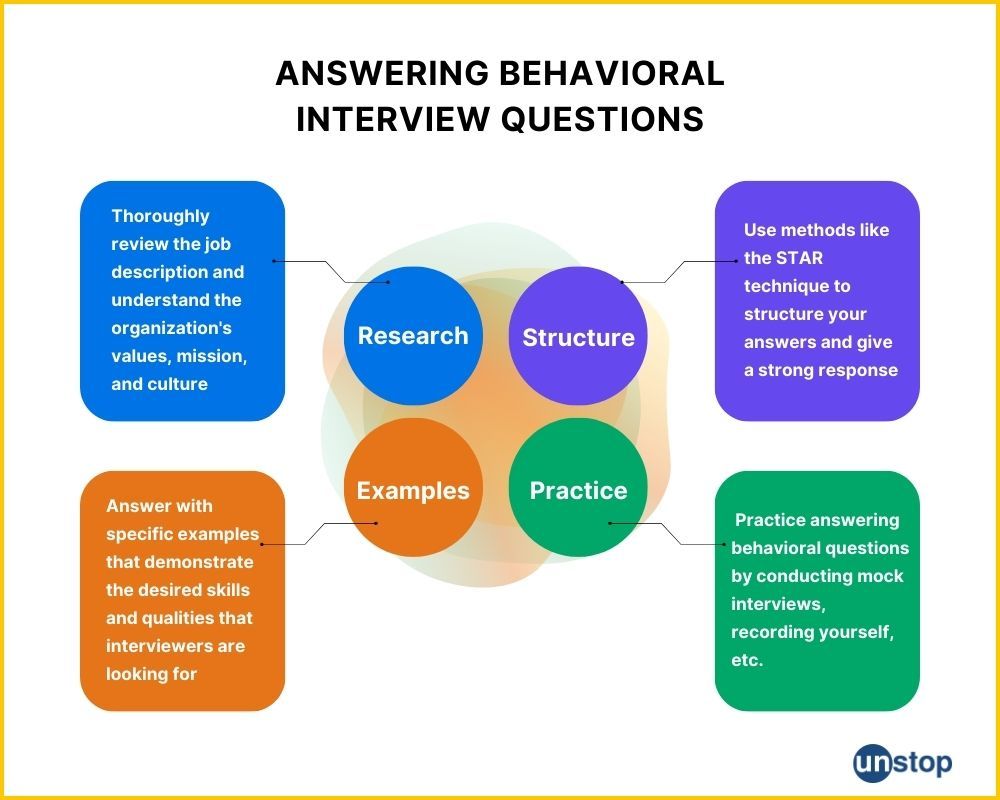










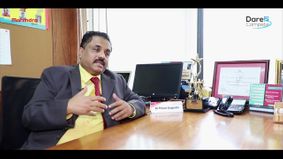

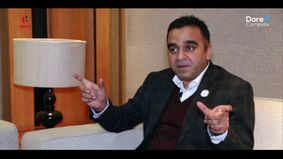
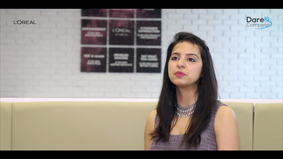
Comments
Add comment